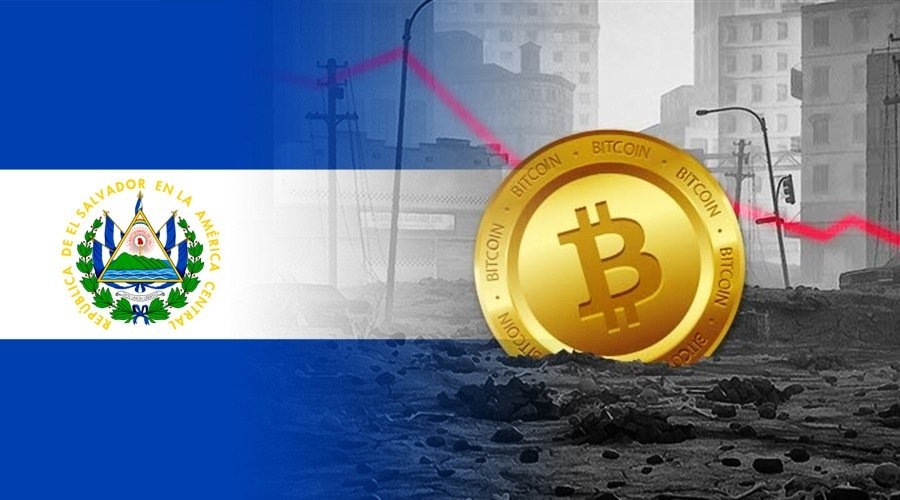[ad_1]
El Salvador has agreed to make merchant acceptance of
Bitcoin voluntary as part of a $1.4 billion loan agreement with the
International Monetary Fund (IMF). Meanwhile, Bitcoin made a bearish move
yesterday (Wednesday), causing its price to drop to $100000. The cryptocurrency
had reached an all-time high of $108,000 the day before.
The country will also scale back its involvement with the
Chivo wallet, which has seen limited use, and restrict public sector
participation in Bitcoin-related activities. These changes are aimed at
reducing El Salvador’s debt-to-GDP ratio, according to an IMF statement on
December 18.
IMF Agreement Limits Bitcoin Use
The agreement, set to last 40 months, requires El Salvador
to implement legal reforms, making Bitcoin acceptance voluntary for the private
sector. Additionally, public sector engagement with Bitcoin will be confined,
with taxes to be paid in US dollars, the country’s official currency. The IMF
noted that government involvement in Chivo will be gradually phased out.
When El Salvador adopted #Bitcoin in 2021, the IMF warned that it was reckless.Now, El Salvador is up hundreds of millions in profit on their investment 🙌 🇸🇻 pic.twitter.com/q7shvs41Vz
— Bitcoin Magazine (@BitcoinMagazine) December 18, 2024
“The potential risks of the Bitcoin project will be
diminished significantly in line with Fund policies. Legal reforms will make
acceptance of Bitcoin by the private sector voluntary,” the IMF said.
BTCUSD Forms Bearish Engulfing Candle After Reaching
$108K
After breaching the $100K mark, BTCUSD headed north and
reached $108K. However, following the formation of a doji candle on the daily
chart, a bearish engulfing candle emerged, closing back within the $100K range.
This is a significant level, where the cryptocurrency is likely to find its
next direction for some time.
El Salvador’s Bitcoin Strategy Faces IMF Scrutiny
El Salvador, which
started buying Bitcoin in 2021, currently holds 5,968.8 Bitcoin, valued
at approximately $632 million. A spokesperson for the National Bitcoin
Office confirmed that the country will continue accumulating Bitcoin at a rate
of one per day and will not sell its current holdings.
The deal is subject to approval by the IMF Executive Board
but concludes years of negotiations surrounding President Nayib Bukele’s 2021
decision to adopt Bitcoin as legal tender. The IMF has previously expressed
concerns about the risks posed by Bitcoin, citing its speculative nature.
JUST IN: 🇸🇻 El Salvador says it will continue buying Bitcoin, possibly at an accelerated pace for its strategic reserve. pic.twitter.com/GW7iJL0j9a
— Watcher.Guru (@WatcherGuru) December 19, 2024
92% of Salvadorans Avoid Bitcoin
In addition to the IMF loan, El Salvador is expected to
secure over $3.5 billion in total financing from other global financial
institutions, including the World Bank.
In response to the IMF announcement, Bukele’s Bitcoin
adviser, Max Keiser, criticized the IMF, dismissing its comments as
“bureaucratic” and “meaningless.”
Keiser argued that
Bitcoin use in El Salvador remains voluntary and continues to grow. However, an
October survey revealed that 92% of Salvadorans do not use Bitcoin for
transactions, a slight increase from 88% in 2023.
This article was written by Tareq Sikder at www.financemagnates.com.
[ad_2]
Source link
